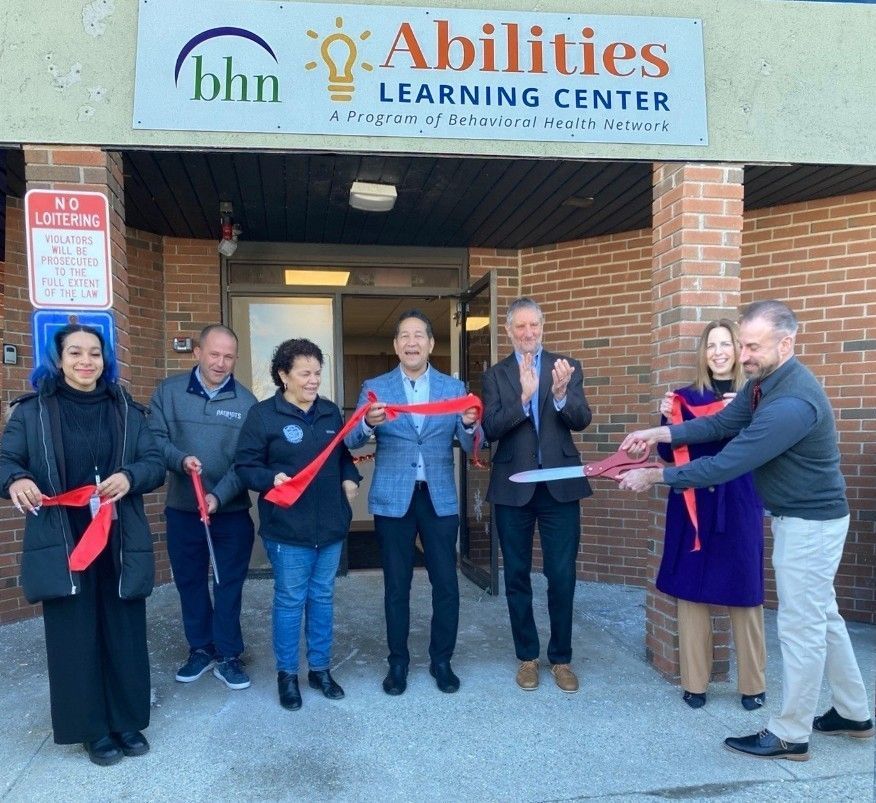Eating Disorder Awareness Week
Eating Disorders Awareness Week takes place February 26 to March 3, 2024. This week aims to raise awareness and understanding of eating disorders and educate the public on when to seek help. Full recovery from an eating disorder is possible, and early detection and intervention are crucial.
Eating disorders can affect anyone - people of all genders, ages, races, and body shapes; an estimated 28.8 million Americans (9%) will have an eating disorder in their lifetime. Some commonly known eating disorders include bulimia nervosa, anorexia nervosa, and binge eating disorder. Eating disorders involve emotions, attitudes, and behaviors surrounding weight, food, and size and can severely impair someone’s ability to live a functional life. Anorexia nervosa, for example, has the highest mortality rate of mental health conditions because of the medical issues associated with it. There is a higher prevalence of suicide attempts and completions among individuals with severe eating disorders.

Sometimes, eating disorders can arise secondary to a new medical diagnosis such as diabetes or Crohn’s disease when one must make dietary changes, says Dr. Gillian Woldorf, BHN Multicultural Psychology Internship Program Assessment Supervisor and eating disorders specialist. Relatedly, insulin-dependent people might intentionally take too much insulin to lose weight, a dangerous behavior nicknamed “diabulimia.”
Dr. Woldorf cautions that behavior related to dieting can also have risks. “Fad diets such as keto, which have limited medical applications but are used to lose weight, can lead to disordered eating, involving making significant but unnecessary changes to eating behaviors. But if they are not careful, this (restrictive behavior) could then lead to an eating disorder, which is clinical. It is a slippery slope.”
There are other lesser-known types of eating disorders like pica, a feeding disorder where a person consumes non-food objects such as dirt and paper and may even eat too few actual foods to maintain healthy bodily functions. Pica occurs most commonly with young children (eating dirt, paste, etc.), is usually done openly, and is often associated with a developmental disorder. However, it can also occur in adults, usually done in secrecy. Pica may be the result of iron deficiency or lead poisoning. Individuals suspected of having pica should talk to their primary care doctor right away.
Additionally, there is a newly recognized eating disorder known as avoidant/restrictive food intake disorder (ARFID), which most commonly develops in children. Not to be confused with “picky eaters,” these children are extremely selective eaters because they fear that the foods that they do avoid are dangerous, may have an extremely unpleasant texture or taste, or may cause choking. They do not have body image concerns, but because they eat a limited variety of preferred foods, it can negatively affect their growth.
Take note of the following signs that someone you know may have an eating disorder:
- Look for changes in their eating behavior, such as suddenly cutting out an entire food group, which is not due to a medical condition like celiac disease.
- Separating foods because they consider some as "bad".
- Cutting food into tiny pieces or being secretive about eating in front of other people.
- Mixing food in unusual combinations such as hot sauce on sweet foods so they will not enjoy it or dumping a huge amount of salt or pepper on their food.
- Changes in their weight, which they may try to hide by wearing baggy clothes. They might also still think they are overweight even when underweight.
“Even working out can be a compensatory behavior,” says Dr. Woldorf. “People with eating disorders can work out excessively for up to four hours a day without stopping because they feel bad if they don’t.”
Fortunately, there are effective evidence-based treatments available for individuals struggling with eating disorders. Clinicians can use dialectical behavioral therapy (DBT) or cognitive behavioral therapy (CBT) to help their patients. Bulimia nervosa may also be treated using interpersonal therapy. For children and adolescents with anorexia nervosa, the Maudsley method is an intensive treatment option where the entire family is involved. Parents receive coaching on how to supervise their children's meals and eating habits. Clinicians should always stay in contact with their clients’ primary care physician.
Simply saying “Hey I’m concerned about you” or “Here’s what I’ve noticed…have you talked to a doctor or therapist?” can go a long way in helping someone address their eating disorder.
Resources
- Multiservice ED Association
- National Eating Disorder Association, (781) 899-2460
- The Renfrew Center for Eating Disorders, (800) 736-3739
If you or a loved one need support call BHN 413-301-WELL (9355) or visit BHN WellBeing locations: 417 Liberty Street, Springfield, MA, or 77 Mill Street, Westfield, MA.
SHARE
Topics
Newsletter Sign-Up
Sign-up for our newsletter to receive updates on what's happening at BHN.





